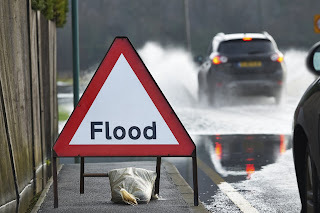Of all the possible catastrophes that can damage a house, floods are the least predictable in terms of the damage that they might cause. Some property owners have the ability to restore their houses even if they have to get rid of some furnishings, devices, and items such as rugs and drapes. Other house owners find themselves confronted with to hundreds of thousands of dollars in repairs. Even then, mold might still grow behind walls and in other locations where water damage cannot quickly be seen.
Unfortunately, lots of people do not recognize that their homeowner's insurance coverage will not cover flood damage till it's far too late. While some of these property owners may qualify for catastrophe relief assistance or a bank loan, these sources of money frequently fall short of the actual expenses of making a terribly affected house safe, sanitary, and livable again.
Flood Damage vs Water Damage
For the functions of insurers, a flood is defined as a short-term rising of water on land that is usually dry, causing broad damage to numerous properties. Flooding can happen due to:
- The overrunning of a body of water, such as a river, ocean, or lake
- Heavy rains that cause water to flow into the basement of a home since of the soil's inability to absorb it quickly enough
- A mudslide triggered by heavy rains
The sort of water damage covered by the majority of house owner's insurance plan does not increase from the ground, but rather enters contact with the home before it hits the ground. For example, if a heavy rain causes water to seep through your roofing or water escapes into your home due to a burst pipe, the resulting damage will probably be covered by your house owner's insurance.
Where to Begin
Flood survivors are not required to wait on an inspection from the Federal Emergency Management Agency or their insurer to start cleaning up and make repairs. FEMA inspectors and insurance coverage claims adjusters will be able to verify flood damage after cleansing has begun.
It's essential for survivors to take pictures of any damage and keep recovery-related invoices. Insurer might require both products, while FEMA might require receipts.
Survivors should examine for structural damage prior to entering their homes and report any damage. They should likewise instantly get rid of damp items like bed linen, carpeting, and furnishings since of health problems that might emerge with mold.
Know Your Policy Terms
The vast majority of property owner's insurance coverage water damage and flood damage, covering losses caused by the previous and not by the latter.
If you live in a high-risk flood risk location and have a mortgage from a federally backed or guaranteed lender, then you already have flood insurance as a condition of your home mortgage. If, nevertheless, you do not have flood insurance, you might need to think about alternative ways of funding the flood repairs to your home.
Whatever the case, you ought to call your insurance coverage agent right away to discuss what is and exactly what is not covered by your insurance policy. Even if your policy does not cover flood damage, it may cover other damage sustained by your home during a flood, consisting of theft of individual products and damage triggered by electrical fires.
To emphasize it again, only flood insurance coverage will protect you from damage triggered by a flood.

It is true that with the help of insurance you can secure your home and your valuable possessions to a great extent. But none of the insurance company can provide you full compensation against the loss caused by flood or water damage. Therefore it becomes compulsion to take help of Queens New York Flooded Basement Repair Company. With their efficient service you can minimize the loss and make recovery easily.
ReplyDelete